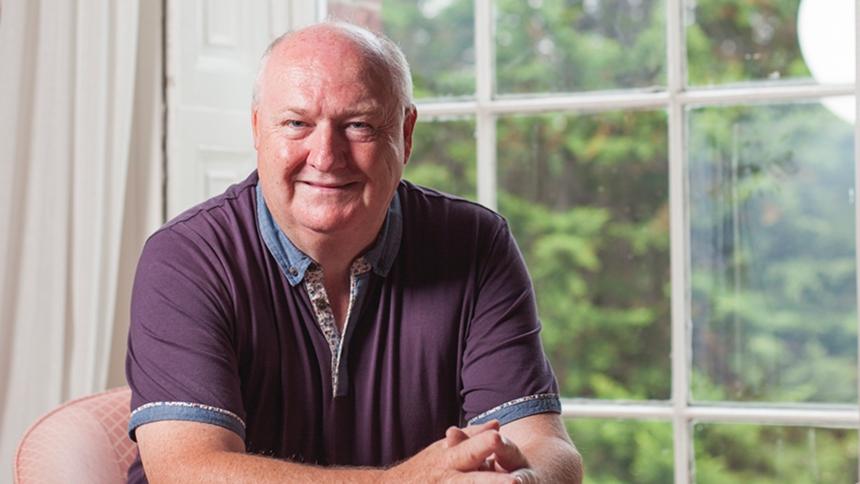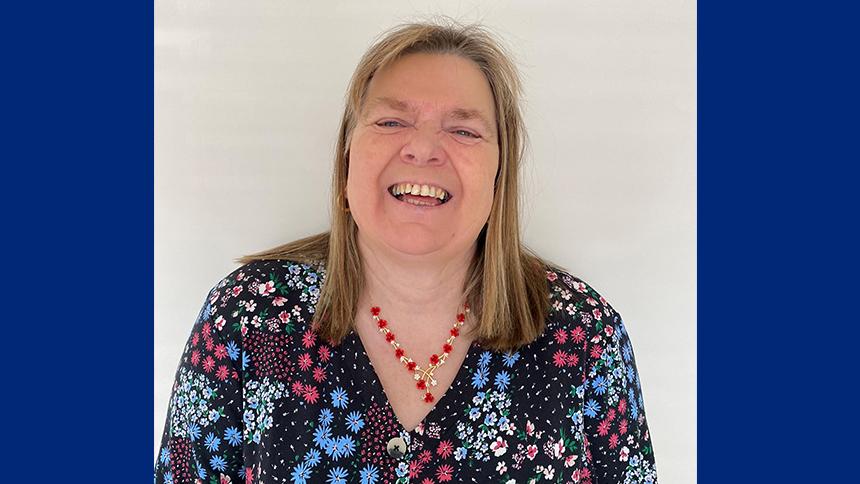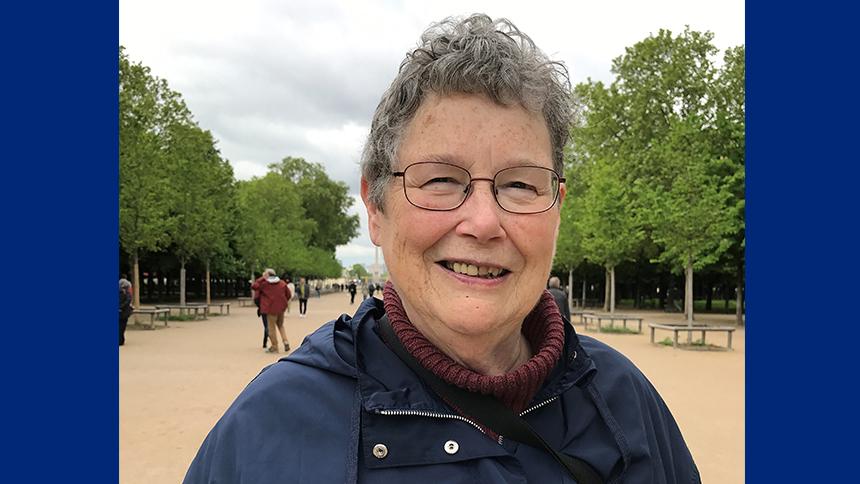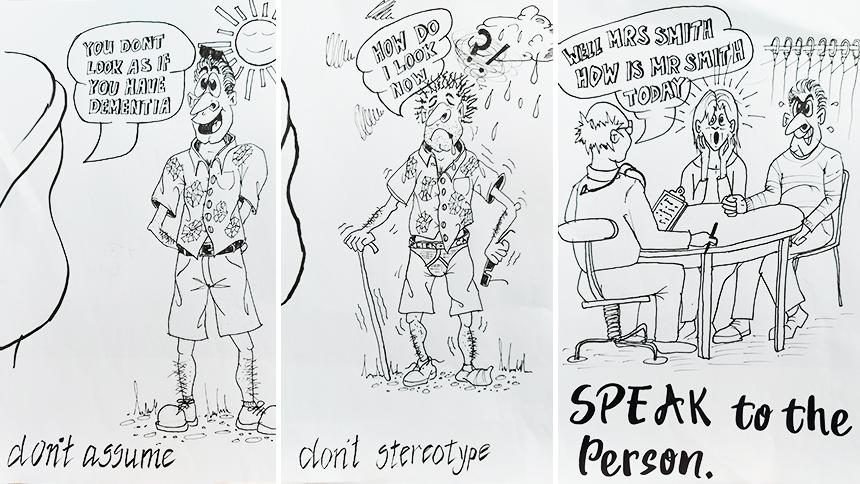People with dementia tell us how to talk to them
We hear what people with dementia want others to understand when communicating with them.
Tommy Dunne, 70, in Liverpool, who has young-onset Alzheimer’s, says, ‘It’s ironic to me that people talk to animals yet will not talk to a person with dementia because they assume we won’t understand.
‘Alzheimer’s affects my short-term memory – it doesn’t mean I don’t remember anything.
‘My top tips for communicating with a person with dementia include always approach them from the front and never be afraid to laugh with them – though not at their expense.’

Tommy Dunne
Laughter can lighten the mood and reduce stress.
‘Always let the person with dementia speak for themselves about their welfare, as they may not speak up in other situations.
‘You should never start a conversation with, “Remember when you…?” That really throws us.
‘Never patronise the person and speak slowly.
Sometimes having a conversation when you have dementia is like using a tape recorder – if you don’t press record, everything you said is lost.
‘But never give up. Communicating with a person with dementia can be rewarding for both of you.’
Jan Melbourne, 58, in Chelmsford and living with vascular dementia, says, ‘People need to be more patient.
‘I was in a shop and tried to talk to the shop assistant about something I needed.
‘The assistant was impatient and got annoyed with me.
‘I then went shopping in a dementia-friendly supermarket and was trying to get something.
The assistant behind the counter made it easier for me to communicate thanks to their training.
‘When talking to someone with dementia, ensure that you leave a gap in the conversation to give them time to finish speaking.’

Lorraine Dallow
Lorraine Dallow, 62, in Swindon, who lives with young-onset Alzheimer’s, says,
Good communication goes beyond the verbal and is about how someone makes you feel.
‘I regularly enjoy going to concerts, comedy nights, films and football with my husband Ian.
‘We work as a team – Ian takes care to let me speak first in group conversations.
‘This allows me to introduce myself and give my opinions before him.
‘I love going out because I get to talk to lots of different people.
I have had lots of great experiences at the venues I’ve been to, and the staff have often been very helpful.
‘At a Nottingham Forest match, the stewards saw I was struggling to get up and down as people in my row passed me, so they moved me to a seat where I wouldn’t get disturbed.
‘I can’t remember the conversation I had with the stewards, but I know they were kind and looked after me.’
Peter Clark in south-west Wales, who has Alzheimer’s, says, ‘Our failing memory does not mean an inability to think logically or immunity to being hurt by thoughtlessness or insult.
If we speak and act rudely or suggestively or use bad language, try to understand it is because the bit of our brain which controls what we say and do is now defective, and does not impose our previous good manners and restraints.
‘By the time we are diagnosed, we have all sorts of things going on like lists and procedures.
‘If you disrupt these, it can take us days to get back into our routines.’

Maxine Linnell
Maxine Linnell, 75, in Leicestershire, who has Alzheimer’s, says, ‘I was diagnosed quite recently, and I find the most painful part of having dementia is some people’s reactions.
When they make assumptions about me, talk over me or act as if I have no feelings and don’t need respect, it breaks down another piece of me.
‘During a recent conversation, one person told me I didn’t have dementia, it was just the latest fad.
‘One said angrily that she had a friend with dementia who regularly phoned to say she felt suicidal.
‘One told me it was the carers she felt sorry for.
But the people I love talking with leave their assumptions and fears aside and just spend time with me.
‘They’re happy to talk about things which matter to us both.
‘When I lose a word, they wait. When it takes me a while to think something through, they’re still just there with me.’
Gerry King, a talented illustrator, is a member of STAND, a Fife group that’s part of the DEEP (Dementia Engagement and Empowerment Project) network.
He depicted some of the experiences that people with dementia shared with us.

Gerry King’s illustrations
Find support near you
Find support near you with our online dementia directory


Lisa Townsend (carer for my Husband with mixed Dementia)
saysPatricia Singleton
saysGed Daly
saysMichael Catton
saysSuzi
saysEric Blackman
saysAnn Oleary
saysArlen
saysAnthony Flavell
saysMike Collins
saysDementia together magazine
says